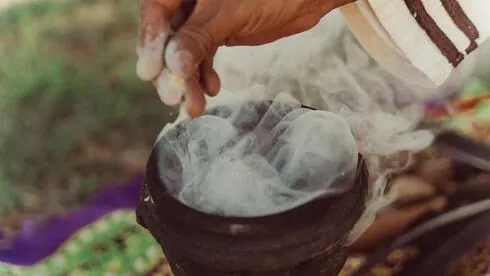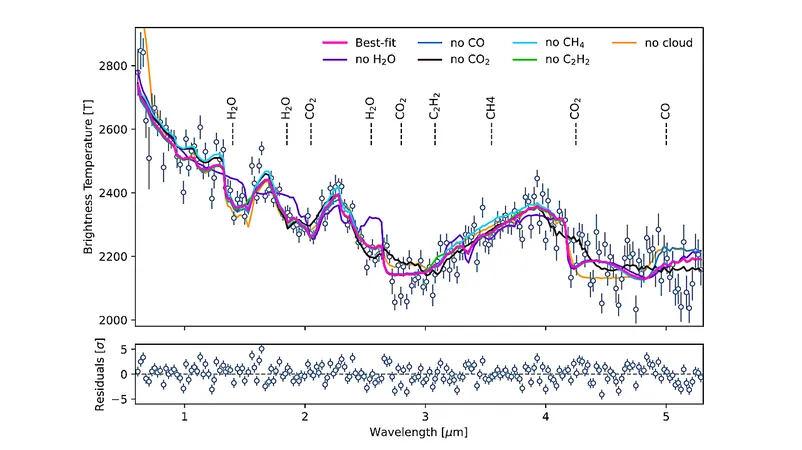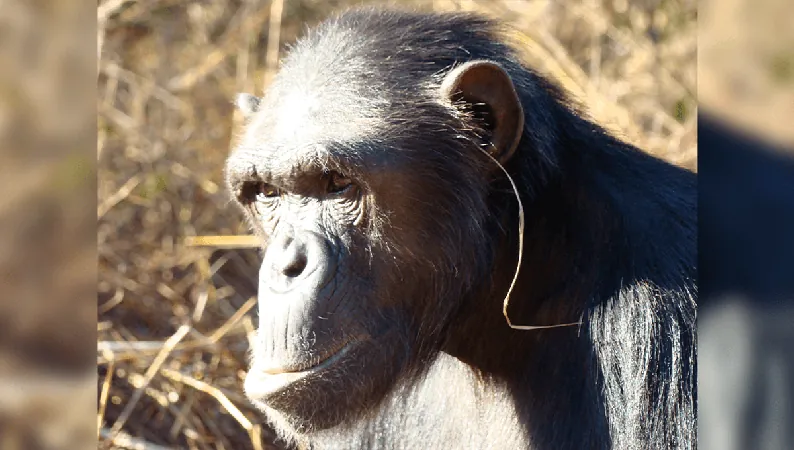
DMT: The Psychedelic Breakthrough in Combatting Resistant Depression and PTSD
2025-06-08
Author: Siti
DMT's Rising Star in Mental Health Treatment
In a groundbreaking development, DMT, a potent psychedelic, is emerging as a potential game-changer in the battle against post-traumatic stress disorder (PTSD) and treatment-resistant depression. However, health experts are sounding the alarm over its significant risks and illegal status in Israel.
What is DMT?
Dimethyltryptamine, or DMT, is a hallucinogenic compound found in certain plants and possibly even in trace amounts in humans. When inhaled, this substance acts swiftly—often within seconds—inducing vivid visual hallucinations, intense emotional experiences, and sometimes, mystical encounters with unknown entities. Although the high typically lasts only 5 to 20 minutes, users often report a feeling that the experience stretches far longer.
A Historical Perspective on DMT
DMT gained fame as the active ingredient in ayahuasca, a traditional Amazonian brew utilized in Indigenous shamanic rituals. In recent years, interest in DMT has soared, spreading beyond the Amazon into clinical settings looking to unlock its therapeutic potential.
The Science Behind the Psychedelic
Pharmacologically, DMT influences the brain's serotonin receptors, particularly the 5HT2-A types, engaging various sensory, emotional, and cognitive processes. Studies suggest that DMT may enhance neuroplasticity, the brain's ability to form new neural connections, prompting researchers to explore its capability to treat mental health issues like resistant depression, PTSD, and even aid recovery from brain injuries.
Promising Trial Results
One pivotal study, known as BPL-003, employs a synthetic form of 5-MeO-DMT delivered through a nasal spray. In a Phase IIa trial, a single 10 mg dose elicited an astonishing antidepressant response in 55% of participants within a mere day. Remarkably, by day 29, half of the subjects were in remission, and even at day 85, 45% continued to experience relief.
Caution: The Risks Involved
Despite the encouraging findings, health experts do not overlook the potential risks. DMT may elevate heart rate and blood pressure, causing nausea, disorientation, and anxiety. Individuals with a history of psychosis or complex mental health issues face even greater dangers. Additionally, mixing DMT with medications like SSRIs or MAOIs heightens the risk of serotonin syndrome, a potentially life-threatening condition.
Navigating Legal and Safety Concerns
In Israel, DMT remains classified as an illegal substance, making possession and usage punishable by law. Experts emphasize the critical importance of 'set and setting'—the user's psychological state and the environment in which the drug is consumed—factors that can dramatically influence the experience.
Responsible Use and Future Directions
Those drawn to experiment with DMT are strongly recommended to take precautions: ensure the substance's authenticity, choose a serene environment, have a sober, supportive companion, steer clear of alcohol and psychiatric medications, and begin with small doses. This is not merely a recreational drug; researchers argue that it serves as a formidable tool that can foster profound psychological insights, but also lead to significant emotional upheaval. As DMT's use expands, the delicate balance between healing and harm emerges, underscoring the necessity for careful preparation, support, and scientific evaluation.
Expert Insights
Dr. Roy Zucker, an internal medicine and infectious diseases specialist, and chair of the Israeli LGBTQ+ Medical Association, has dedicated his efforts in recent years to harm reduction strategies concerning substance use, highlighting the importance of responsible engagement with psychedelics like DMT.




 Brasil (PT)
Brasil (PT)
 Canada (EN)
Canada (EN)
 Chile (ES)
Chile (ES)
 Česko (CS)
Česko (CS)
 대한민국 (KO)
대한민국 (KO)
 España (ES)
España (ES)
 France (FR)
France (FR)
 Hong Kong (EN)
Hong Kong (EN)
 Italia (IT)
Italia (IT)
 日本 (JA)
日本 (JA)
 Magyarország (HU)
Magyarország (HU)
 Norge (NO)
Norge (NO)
 Polska (PL)
Polska (PL)
 Schweiz (DE)
Schweiz (DE)
 Singapore (EN)
Singapore (EN)
 Sverige (SV)
Sverige (SV)
 Suomi (FI)
Suomi (FI)
 Türkiye (TR)
Türkiye (TR)
 الإمارات العربية المتحدة (AR)
الإمارات العربية المتحدة (AR)